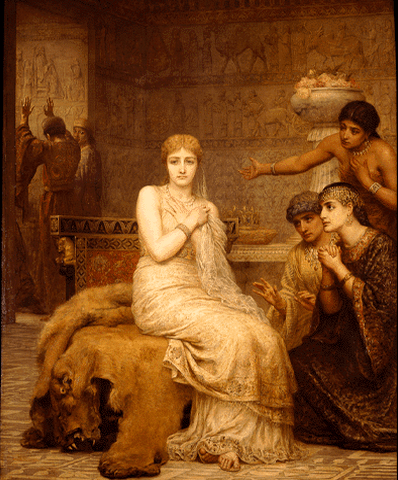From DEEP CALLS TO DEEP
By Jane Medved:
WINTER BURIAL
For the sky that reaches into its hushed pocket,
for the bridle of winter waiting to be released.
For the ghost face which slips over everyone,
for the tusk of the same white beginning.
For crystals that shape themselves while falling,
for the storm’s icy laugh.
For the charred bars of the petting zoo,
whose cages were made out of wood and went up fast.
For the twin goats trapped, for the small fire they turned their back on,
the bread burning, the coffee.
For the one surviving goose housed in a Little Tikes kitchen,
the black centers of his eyes and the string closing the door.
For the fenced-in storage area now zoned for a park,
where there used to be patches of dried grass.
For the last time it snowed on the Jerusalem highway,
and they wouldn’t let anyone in or out.
For the holiday makers who were stranded
without fun.
For my niece’s baby who never woke up that day,
she was an angel in her crib.
For they got her into the ground just before it froze,
but no one knows where.
For the hidden ear of the tzaddik she is buried next to,
for the cooing she drops into the ground where it melts.
For her small breaths, none of which are
shaped the same.
For the soul, which cracks open the body,
for the body, which is told what it must carry.
For when the ice let me back down the hill,
I found my niece in her kitchen, forgiving everyone.
from THE LAST TIME I SAW HEROD
I. Women’s shelter, Miriam HaHashmonait St., Jerusalem
He was banging on the gate
even though there is no way
to know that we are in here.
He was looking for his wife,
aren’t they all, which is why
we make the children play
in the yard and of course
he knew her real name,
which makes me wonder
what’s the point of being
a princess if even that
can be taken away. I’m not
sorry he looked thin. I used
to feed my own husband
but I never watched him eat.
In my mind he was gulping
me down, tearing everything
apart so as not to miss a piece.
EVERYTHING WILL TELL ITS OWN STORY
sooner or later, coins, a copper lantern,
bits of colored glass, Napoleon’s diary
on loan from Harvard and the endless
lap of water at the world’s toothless edge.
These were found in the Phoenician port
where Napoleon threw his cannonballs
into the Mediterranean to lighten the load.
He wised up soon enough and tossed
his soldiers overboard instead.
The metal balls are shocked into rust
and stare like thick black eyeballs
from their shelf in the dusty museum.
History ignores the bodies though,
their bones turn to fine sand
that tricks the treasure hunters
with its unpredictable lapses. Never mind.
We are all one part ocean anyway,
which is why sex smells like fish, and waves
always come back to a dry river bed.
We are all one part earth, which is why
snow angels cannot fly but lose themselves
to the ground, only the children
leave a clue, a small piece of spine
that still remains even if they are forced into ashes.
We are all one part fire, angry
as a kidney stone, a fist, absolutely certain,
a blaze that hides for months in the smoking
roots of the rotem tree, waiting
to be lifted out, spoken into flame and taken.
We are all one part wind, did you notice
how birds spread out like notes
when they fly, faithful as radio beams
to their unseen connections.
I inhale the invisibility of it, using up
my appointed breaths, certain
that the air will always pass through me
cold and hot and justified.
WHICH IS TO SAY,
there is another way home.
Just
yesterday, I saw the beating arc of starlings
who migrate to the Negev every year. It was late
and you have to take my word for this. They
became a single body that exhaled a melody
of startled scales made out of bones and feathers,
a flock of notes that scattered to swoop and play,
then reassemble in a different serenade, a fist of
sky squeezing its shape, or the curve of a swan’s
neck.
It was remarkable,
how soundless waves
could cart away the distance,
and how I forgave,
in that moment, everyone.
Which is to say,
that the desert is a grave and lonely place,
where silence reappears as another kind of music.
Today’s poems are from Deep Calls to Deep (New Rivers Press, 2017), copyright © 2017 by Jane Medved, and appear here today with permission from the poet.
Deep Calls to Deep: “Taking its title from Psalm 42, Deep Calls to Deep explores the nexus between the depths of biblical history and the depths of the self, and the twin powers of faith and doubt that drive them both. Building from a masterful sequence exploring the legacies of Herod to a final richly lyrical sequence, Deep Calls to Deep becomes richer with multiple readings. With stunning formal variety and skill, it enacts not only the struggle to maintain faith, but to ground it equally in past and present, chaos and void, self and other.” — Leslie Adrienne Miller, author of Y and The Resurrection Trade
Jane Medved is the author of Deep Calls to Deep (winner of the Many Voices Project, New Rivers Press 2017) and the chapbook Olam, Shana, Nefesh (Finishing Line Press, 2014) Her recent essays and poems have appeared or are forthcoming in Queen Mob’s Teahouse, The Tampa Review, The Atticus Review, The Cortland Review, 2River View and Vinyl. She is the poetry editor of the Ilanot Review, the on-line literary magazine of Bar Ilan University, Tel Aviv. She lives and teaches creative writing in Jerusalem, Israel.
Editor’s Note: “History ignores the bodies,” but Jane Medved does not. It is through her own determined lens on history that the poet shapes this stunning new collection. The history she embraces is personal and familial, ancient and deeply entrenched, a history of people and place, of nature and land, of violence and loss. One might approach this work like an archaeologist, gentle and sifting, knowing that “coins, a copper lantern, bits of colored glass” are all precious, that every word and artifact you come across has a story to tell.
Deep Calls to Deep is ambitious, provocative, heart-wrenching and sacred. Within its pages the spiritual commingles with the archaeological, and words lay bare lost treasures like a desert wind revealing fact and fiction from beneath centuries of sand. The collection is divided into four sections, each so distinct and compelling that I could only begin to give you a taste of the whole by sharing a poem from each.
How visceral it is to read this collection. How engrossing. How evident on every page the capable hand of the poet who wrought the work, her knowledge and skill as writer and reader, how in tune she is with the human experience. Deep Calls to Deep is a masterpiece of the lyric, overflowing with stunning language and accessible imagery, at once startling in its beauty and reassuring in its familiarity. “Which is to say, // there is another way home… Which is to say, // that the desert is a grave and lonely place, / where silence reappears as another kind of music.”
Want more from Jane Medved?
Buy Deep Calls to Deep from Amazon
Queen Mob’s Teahouse
Cortland Review
2River View
A NOTE FROM THE MANAGING EDITOR:
After nearly ten years as Contributing Editor of this series, I am thrilled to expand my role to Managing Editor and provide the opportunity for fresh voices to contribute to this ongoing dialogue. It is an honor and a unique opportunity to now share this series with a number of guest editors, and we’ll be hearing more from them in the coming weeks. Today’s feature, however, is a labor of love from yours truly.
Viva la poesia!
Sivan, Managing Editor
Saturday Poetry Series, AIOTB











